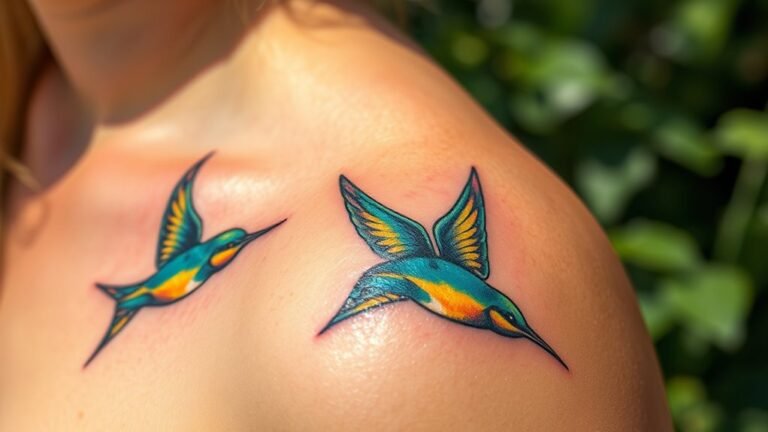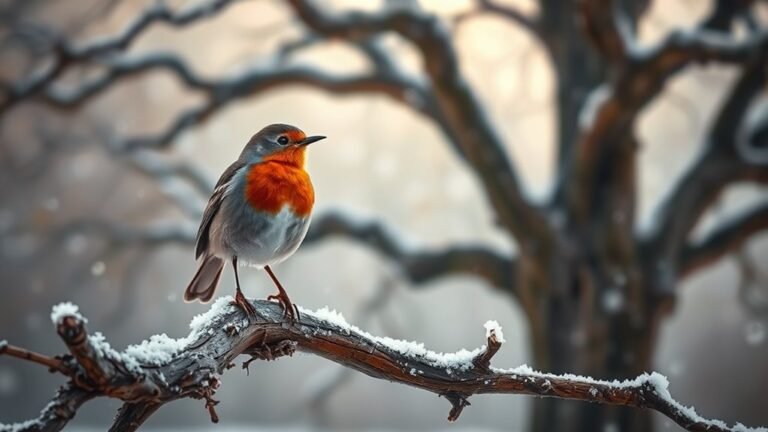Will Eating Rice Cause a Bird to Explode?
Many people worry that feeding rice to birds could have dangerous effects, such as causing them to explode. This idea is based on misunderstandings about how birds digest food. To address this myth, let's look at what really happens when birds eat rice.
Birds can digest rice without any harmful effects. In fact, many birds consume grains, including rice, as part of their natural diet. Cooked rice is safe for birds, while uncooked rice poses no risk of expanding in their stomachs.
In summary, feeding rice to birds does not lead to any explosive problems. It's important to remember that birds can safely eat rice, so you can enjoy watching them without worry.
Key Takeaways
- The myth that rice causes birds to explode is based on misunderstandings and misinformation.
- Uncooked rice is difficult for birds to digest and can pose health risks.
- Cooked or properly prepared rice can be safely offered as an occasional treat.
- Rice lacks essential nutrients, so it should not replace a balanced diet of seeds, fruits, and insects.
- Understanding birds' nutritional needs helps prevent health issues related to improper feeding.
The Origins of the Rice Exploding Myth

The myth that rice can explode during cooking is based on misunderstandings and misinformation. Different cultures see rice as important, symbolizing life and food. This leads to exaggerated warnings about boiling rice.
The myth began from wrong interpretations of cooking methods, mixed with personal stories and fear. It's important to respect these beliefs, as they show the value placed on food and health in these communities.
Learning the truth can help clear up the myth and build respect among those who cherish rice as a key part of their diet.
Understanding Bird Digestion
Understanding how birds digest food is important for knowing their dietary needs and roles in the ecosystem. Birds have a unique digestive system that quickly converts food into energy. Their fast metabolism requires them to break down nutrients efficiently using specialized enzymes. These enzymes break down proteins, fats, and carbohydrates into forms the body can use.
Birds also have a gizzard, a muscular part of the stomach that grinds food. This helps with digestion by breaking food into smaller pieces.
As you observe birds in your area, appreciating what they eat can enhance your understanding of them. Learning about their digestion can help you support their health and contribute positively to their populations.
What Happens When Birds Eat Rice?

When birds eat rice, several processes occur in their digestive systems.
First, rice provides carbohydrates, which can give birds energy for flying and other activities. However, birds may have difficulty breaking down uncooked rice.
This can create risks for their health. Since uncooked rice expands when wet, it's important that birds only eat rice that's cooked or properly prepared.
Giving them rice as an occasional treat can be safe in moderation, but their main diet should consist of seeds, fruits, and insects.
Understanding this helps you support the health and happiness of your feathered friends.
Different Types of Rice and Their Effects
Different types of rice can affect birds' health and digestion in various ways.
Here's a simple guide to help you choose the right rice for your birds:
- Brown Rice: This rice contains the whole grain and has a fibrous texture. It can support digestion but may be difficult for some birds to digest.
- White Rice: This rice is more refined and soft. It's easier for birds to digest, but it has fewer nutrients than whole grains.
- Jasmine and Basmati Rice: These are aromatic rice varieties. They're generally safe for birds, but their nutritional value is lower compared to other types.
Always consult an avian specialist for advice on the best rice for your birds.
This way, your feathered friends will enjoy their meals and stay healthy!
Nutritional Value of Rice for Birds

When choosing rice for your birds, consider its nutritional value, as this affects their health.
Rice provides carbohydrates, which give birds energy for their active lives. However, rice doesn't supply all essential nutrients, such as protein and some vitamins.
To ensure a balanced diet, pair rice with foods high in these nutrients. Adding fruits, vegetables, and seeds helps create complete meals for your birds.
Your goal is to maintain a healthy flock, and understanding rice's role in their diet is key to that effort.
Other Foods to Avoid Feeding Birds
Birds need a healthy diet, and some foods are harmful.
Here are items you shouldn't feed them:
- Avocado Flesh: This contains persin, which can poison birds and cause serious health issues.
- Chocolate Treats: Chocolate has theobromine, which can be fatal to birds and lead to various health problems.
- Onion Scraps: Onions can harm birds' red blood cells and cause anemia.
Be careful with pomegranate seeds and popcorn kernels, as these can choke birds.
Safe Practices for Feeding Birds
Feeding birds can be a rewarding experience. Here are some simple and safe practices to follow:
- Choose quality birdseed. Select seeds without additives or preservatives. Opt for varieties that attract local backyard birds.
- Clean feeding stations often. Regularly wash your feeders to prevent mold and bacteria. This helps keep birds healthy.
- Avoid table scraps and processed foods. These can harm birds by disrupting their natural diets.
- Provide fresh water. Offer clean water for drinking and bathing. This encourages more birds to visit your feeders.
- Be aware of local wildlife. Squirrels and raccoons may compete for food. Make adjustments to your feeding setup if necessary.
Myths and Facts About Bird Diets
Understanding bird diets is important for giving them the right food. Many myths about bird diets can lead to confusion. Here are clear facts to correct these beliefs:
- Birds can have bread: Bread isn't harmful if given in small amounts. However, it doesn't provide important nutrients birds need.
- Birds eat more than seeds: Birds like a variety of food. They enjoy fruits, vegetables, and insects, which contribute to their health.
- Some human food is safe: Birds can safely eat cooked rice, vegetables, and specific nuts. Just make sure these foods don't have added sugars or salts.
Providing the right diet is crucial for keeping birds healthy and happy.
Frequently Asked Questions
Can Birds Eat Other Grains Besides Rice?
Yes, birds can eat a variety of grains besides rice. They often enjoy seeds like millet and oats. Make sure you choose safe grain options to keep your birds healthy and happy. Birds love different textures and flavors, so offering a mix can be fun for them!
Is Cooked Rice Safe for Birds?
Cooked rice is safe for birds and can be a healthy snack. Ensure it is plain and give it in small amounts. Different bird species digest food differently. It's wonderful that you care for birds!
Do All Birds Have the Same Dietary Needs?
Not all birds have the same dietary needs. Different bird species need specific foods to stay healthy. Knowing what each bird eats is important for their health and well-being. This knowledge also helps strengthen the bond you share with your feathered friends.
Feeding birds correctly can lead to happier and healthier pets. Providing the right diet encourages natural behaviors and promotes longevity. Always research the dietary requirements of individual bird species to support their unique needs and ensure they flourish in your care.
How Much Rice Can I Safely Feed My Bird?
When feeding your bird, serve safe portions of rice. Generally, give a teaspoon or less, depending on your bird's size. Follow bird feeding guidelines to ensure your bird has a balanced diet. This helps keep your feathered friend healthy and happy.
Are There Any Bird Species That Can't Eat Rice?
Some birds can eat rice without problems, such as finches and parrots. However, other species might face digestive issues or toxicity from rice. It is important to watch how your bird reacts. If you have concerns, consult a veterinarian for advice specific to your bird's needs.

Hello, I’m Emily Price, the founder of Birds Affection. As a passionate bird enthusiast and spiritual seeker, I’ve always been fascinated by the symbolic meanings and mystical connections between birds and our lives. On this website, I share my knowledge and insights on the spiritual significance of various bird species, exploring their roles as messengers, guides, and teachers. Through my writing, I aim to inspire and educate others on the profound wisdom and beauty that birds bring to our world. Join me on this journey as we delve into the enchanting realm of bird symbolism and discover the hidden meanings behind these magnificent creatures.







